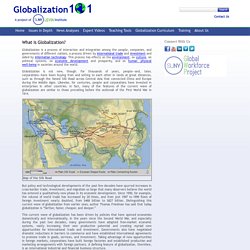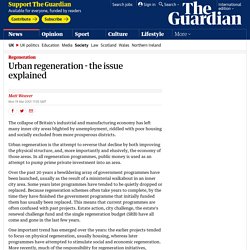

Inequality in the UK. Pictures show how living conditions in Liverpool have ... Housing conditions in parts of Liverpool have improved only marginally since the 1960s, a leading charity today claimed.

Shelter has released iconic images taken by photographer Nick Hedges of families living amidst cramped conditions in 1960s Liverpool. Kevin Garvey, a policy officer at the charity, recently visited families in Anfield and Speke who were tenants in privately-owned accomodation. He told how the gap between today and the conditions captured by Hedges all those years ago is “wafer thin”.
Mr Garvey, who comes from Wirral, said: “I visited one family in Anfield near the stadium where two parents and their five children are sharing a single bedroom. “Their ‘beds’ comprise of two double air mattresses shoved together, covering almost all of the floor space. “The walls are covered, floor to ceiling, in mould.
“Their tiny bathroom is in no better condition. Mr Garvey also told of another visit to a home in Speke. Read More Liverpool Nostalgia Read More Liverpool Nostalgia Read More. Kurds. What Is Globalization? Globalization is a process of interaction and integration among the people, companies, and governments of different nations, a process driven by international trade and investment and aided by information technology.

This process has effects on the environment, on culture, on political systems, on economic development and prosperity, and on human physical well-being in societies around the world. Globalization is not new, though. For thousands of years, people—and, later, corporations—have been buying from and selling to each other in lands at great distances, such as through the famed Silk Road across Central Asia that connected China and Europe during the Middle Ages. Likewise, for centuries, people and corporations have invested in enterprises in other countries. In fact, many of the features of the current wave of globalization are similar to those prevailing before the outbreak of the First World War in 1914. Technology has been the other principal driver of globalization. High street crisis: Record number of shops disappeared in 2018.
By Emily Mee, news reporter, and Carmen Aguilar Garcia, data journalist Britain's top high streets lost a record net 2,481 shops last year, following years of decline.

An average of 16 stores closed per day in 2018 - compared to nine opening daily - according to PwC research compiled by the Local Data Company (LDC). The net number of store closures is calculated by comparing the number of shops opening with the number closing. It is not all bad news for retailers, as ice cream parlours and vape stores have been increasing in number. High streets have been hit by lower footfall, increasing costs and a shift to online shopping in recent years. In February, the number of visitors to UK shops dropped by 2% - the biggest decline in the month in five years - according to figures from Springboard and the British Retail Consortium. SAGE Journals: Your gateway to world-class journal research.
Urban regeneration - the issue explained. The collapse of Britain's industrial and manufacturing economy has left many inner city areas blighted by unemployment, riddled with poor housing and socially excluded from more prosperous districts.

Urban regeneration is the attempt to reverse that decline by both improving the physical structure, and, more importantly and elusively, the economy of those areas. In all regeneration programmes, public money is used as an attempt to pump prime private investment into an area. Over the past 20 years a bewildering array of government programmes have been launched, usually as the result of a ministerial walkabout in an inner city area. Some years later programmes have tended to be quietly dropped or replaced. Because regeneration schemes often take years to complete, by the time they have finished the government programme that initially funded them has usually been replaced.
There are currently two main regeneration funds: the new deal for communities and the neighbourhood renewal fund. High Street: Five ways UK shopping has changed - BBC News. Image copyright Getty Images Hardly a month goes by without news of another wave of shops shutting or of stores losing money.

Retailers are holding on to more space than they can pay for, and costs are shooting up, reports suggest. So, what is behind the High Street crisis? 1. Shops are empty, and too big Fashion chains Karen Millen and Coast recently announced closures. The fast-growing online fashion chain Boohoo snapped up the brands following their collapse. The number of empty shops already stands at a record high. In July the proportion of all shops that are empty reached 10.3%, its highest level since January 2015. Last year, big chains such as Toys R Us, Maplin and Poundworld went bust and vanished altogether. New research also indicates the top 150 UK retailers have 20% more store space than they need and can afford. Some shops such as Homebase, Mothercare, Carpetright and New Look have done restructuring deals with their landlords, closing hundreds of shops between them. 2. 3. Gentrification Explained.